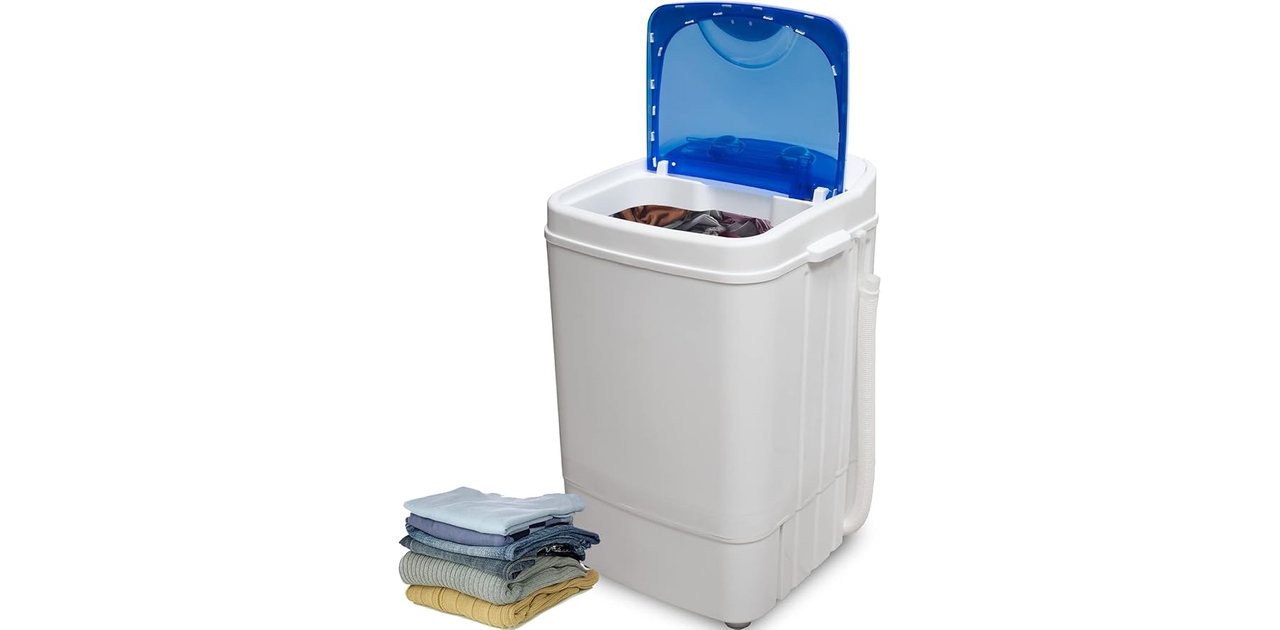
A tiny house clothes washer is a compact appliance for small living spaces. It saves space while efficiently cleaning laundry.
Tiny homes have gained popularity for their minimalist lifestyle and environmental benefits. As more people embrace this trend, the need for space-saving appliances increases. A tiny house clothes washer is a smart choice for people who want to do laundry without losing space.
These washers come in various styles, including portable and combo units, catering to different needs. Selecting the suitable model involves considering capacity, energy efficiency, and water usage. With the suitable tiny house washer, you can enjoy clean clothes without cluttering your living area. Efficient laundry solutions empower you to enjoy the tiny house lifestyle fully.

Tiny House Living
Tiny House Living is a lifestyle choice that emphasizes simplicity and minimalism. It promotes living in a smaller space to reduce clutter and expenses. One essential item for this lifestyle is the tiny house clothes washer. This compact appliance makes laundry easy without taking up much space.
Fancy washers are great for those who enjoy convenience. However, many people prefer practical options, like a non-electric camping washing machine. Each option supports the tiny house ethos while keeping laundry manageable.
Benefits Of Minimalism
Minimalism is at the heart of tiny house living. It encourages individuals to focus on what truly matters. Here are some key benefits:
● Less Clutter: A smaller space means less stuff to manage.
● Lower Costs: Tiny homes require fewer resources, saving money.
● Environmental Impact: Living small reduces your carbon footprint.
● Increased Freedom: Less stuff means more time for experiences.
● Stress Reduction: A simplified life leads to less stress.
With a tiny house clothes washer, laundry becomes easier. It fits perfectly into small spaces.
Many opt for the Giantex portable washer and dryer. This model combines efficiency with compact design. The table below highlights the features of popular washing options:
| Washer Type | Size | Power Source | Features |
|---|---|---|---|
| Fancy Washers | Medium | Electric | Smart controls, multiple settings |
| Camping Washing Machine Non Electric | Portable | None | Manual operation, lightweight |
| Dorm Room Washer | Compact | Electric | Small capacity, ideal for students |
Space-saving Solutions
Maximizing space is vital in living in a tiny house. Efficient use of space leads to comfort and functionality. Here are some effective space-saving solutions:
● Stackable Washers: These save floor space and fit well.
● Multi-Use Furniture: Use items that serve multiple purposes.
● Wall-Mounted Units: These keep floors clear and add style.
● Portable Options: A Giantex portable washer and dryer is perfect for small areas.
Consider using a tiny house clothes washer that fits under counters or closets. This keeps laundry out of sight. The right choice helps maintain an organized home. Embrace space-saving strategies for a stress-free living experience.
Laundry Challenges
Tiny houses offer a unique lifestyle, providing freedom and simplicity. Yet, they also bring their own laundry challenges.
Finding a suitable tiny house clothes washer can be tough. Limited space and water usage are two big issues. Understanding these challenges helps in making better choices.
Limited Space
Space is often the biggest challenge in tiny homes. Fancy washers take up too much room. Small appliances are a must. Here are some options:
● Giantex portable washer and dryer: Compact and efficient.
● Camping washing machine nonelectric: Great for outdoor lovers.
● Dorm room washer: Perfect for small living spaces.
These options fit well in tiny houses. They are lightweight and easy to store.
Many people choose portable models. They can be moved around easily. Here’s a quick comparison of popular models:
| Model | Size | Type | Price |
|---|---|---|---|
| Giantex Portable Washer | 1.6 Cu. Ft. | Washer/Dryer Combo | $300 |
| Camping Washing Machine | Compact | Non Electric | $40 |
| Dorm Room Washer | 1.0 Cu. Ft. | Washer Only | $250 |
Choosing a suitable washer saves space and time. Tiny homes require intelligent solutions for laundry.
Water Usage Concerns
Water usage is another critical issue for tiny house owners. Many tiny house clothes washers use less water. This is eco-friendly and budget-friendly. Here are some key points:
● Traditional washers consume a lot of water.
● Portable washers use significantly less.
● Nonelectric models require manual effort.

Understanding water efficiency is crucial. Some models use as little as 10 gallons per load. Here’s a quick overview of water usage for different models:
| Model | Water Usage (Gallons/Load) |
|---|---|
| Giantex Portable Washer | 15 |
| Camping Washing Machine | 5 |
| Dorm Room Washer | 12 |
Choosing a washer with lower water usage saves money and helps the environment. Tiny house living means being mindful of resources.
Table of Contents
Types Of Washers
Finding a suitable washer for a tiny house can be tricky. Tiny house clothes washers come in different types, perfect for small spaces. Choosing the right kind can make laundry day easier. Whether you need a compact or a portable option, there’s something for everyone.
Compact Washers
Compact washers are small yet powerful. They fit easily in tight spaces, and many tiny house owners prefer them for their efficiency and design.
● Size: Compact washers typically measure 24 inches wide.
● Capacity: They hold about 1.5 to 2.0 cubic feet of laundry.
● Features: Some have fancy washers with multiple wash cycles.
Here are some popular compact washer brands:
| Brand | Model | Features |
|---|---|---|
| Giantex | Giantex Portable Washer and Dryer | 2-in-1, easy to use, energy-efficient |
| LG | LG WM3488HW | Stackable, smart technology, quiet |
These washers work well for apartment living or dorm rooms. They save space and time while doing laundry. Many also have energy-saving features, making them eco-friendly.
Portable Models
Portable washers are great for tiny homes and camping. These machines are lightweight and easy to move, and they can wash clothes without needing a permanent setup.
● Nonelectric options: Some nonelectric camping washing machines use a manual hand crank.
● Easy storage: They can fit in closets or under beds.
● Quick setup: Set them up in minutes for easy use.
Popular portable models include:
| Model | Weight | Usage |
|---|---|---|
| Giantex Portable Washer | 30 lbs | Perfect for tiny homes and dorms |
| WonderWash | 6 lbs | Best for camping trips |
Portable washers save water and energy. They offer flexibility, making laundry easy anywhere. These options fit perfectly in tiny houses, helping you keep your space neat and organized.
Energy Efficiency
Energy efficiency is crucial for tiny house living. Space is limited, and every resource counts. A tiny house clothes washer must balance performance with low energy use.
Choosing a suitable washer can save money and protect the environment. Compact washers, like the Giantex portable washer and dryer, offer convenience without the energy drain. Many options exist, from fancy washers to nonelectric camping washing machines. Understanding energy ratings helps you make smart choices.
Energy Star Ratings
Energy Star ratings show how efficient a washing machine is. These ratings help consumers find energy-saving appliances. Here are some critical points about Energy Star ratings:
● Energy Star certified appliances use less energy than standard models.
● They can save up to 50% on energy costs.
● Look for the Energy Star label when buying a washer.
Most tiny house clothes washers are compact. They should still meet high energy standards. Here’s a quick comparison of some popular models:
| Washer Model | Energy Star Rating | Water Usage (per load) | Estimated Annual Cost |
|---|---|---|---|
| Giantex Portable Washer and Dryer | Yes | 15 gallons | $30 |
| Dorm Room Washer | Yes | 12 gallons | $25 |
| Fancy Washers | No | 20 gallons | $50 |
Choosing an Energy Star-certified washer reduces your energy bill and helps the planet by using less electricity.
Low Consumption Options
Many low-consumption options exist for living in a tiny house. Compact and efficient designs help save space and energy. Here are some examples:
● Giantex portable washer and dryer: Great for small spaces.
● Camping washing machine nonelectric: It uses no power and is very eco-friendly.
● Mini washers: Perfect for dorm rooms or tiny homes.
These machines use less water and energy. Here’s a quick list of benefits:
1. Lower utility bills.
2. Environmentally friendly.
3. Compact and easy to store.
Many tiny house clothes washers fit well in small spaces. They offer convenience without the high cost. Consider these low-consumption options for your tiny home.
Installation Tips
The world of tiny house living offers unique challenges, especially with appliances like a tiny house clothes washer. Choosing and installing a suitable washer is crucial for maximizing space and efficiency. This section provides essential installation tips to help you set up your washer seamlessly.
Plumbing Considerations
Proper plumbing is vital for your tiny house clothes washer. With it, you may avoid leaks or drainage issues. Consider the following:
● Water Supply: Ensure you have a reliable water source. Use flexible hoses to connect your washer to the supply line.
● Drainage: Your washer needs a proper drainage system. Install a drain hosethat leads to a suitable drainage area.
● Water Pressure: Check your water pressure meets the washer’s requirements. Most washers need between 20-100 PSI.
Here’s a simple table for quick reference:
| Aspect | Details |
|---|---|
| Water Supply | Reliable source with flexible hoses |
| Drainage | Proper drain hose installation |
| Water Pressure | Must be between 20-100 PSI |
Consider fancy washers that come with built-in features to simplify your plumbing setup. Models like the Giantex portable washer and dryer are great for tiny spaces. They often require less complex plumbing, making installation easier.
Ventilation Needs
Proper ventilation is crucial for your tiny house clothes washer. Moisture can build up without good airflow, leading to mold and odors. Here are some key points:
● Airflow: Ensure the washer has enough space around it for air to circulate.
● Drying: Consider a washer with a drying feature. This minimizes the need for additional drying space.
● Placement: Install the washer in a well-ventilated area. This could be a laundry nook or near a window.
A non-electrical camping washing machine would be perfect for small spaces like dorm rooms. These models require no power and can be ventilated easily. Here’s a quick checklist for ventilation:
1. Check for obstructions around the washer.
2. Use a fan if necessary to improve airflow.
3. Monitor humidity levels in the room.
Setting up a dorm room washer requires careful consideration of ventilation. Choose models designed for small spaces to ensure they fit well and maintain airflow.
Cost Analysis
The cost analysis of a tiny house clothes washer is vital for small homeowners. These compact machines save space and water.
Understanding the costs helps make intelligent choices. A tiny house clothes washer can be a practical solution for laundry needs. Let’s break down the costs into initial investments and long-term savings.
Initial Investment
The initial investment for a tiny house clothes washer varies widely. Prices can range from $200 to over $1,000. The cost depends on the brand, features, and type.
Fancy washers often have more features but come with a higher price tag. Here’s a breakdown of some popular options:
| Washer Type | Price Range | Features |
|---|---|---|
| Tiny House Clothes Washer | $200 – $600 | Compact, efficient |
| Camping Washing Machine Non Electric | $30 – $150 | Portable, manual |
| Giantex Portable Washer and Dryer | $300 – $700 | Combo unit, electric |
| Dorm Room Washer | $150 – $400 | Compact, easy to store |

Buying a tiny house clothes washer requires careful thought. Consider your washing habits and available space. A nonelectric camping washing machine is cheaper but requires more manual effort.
A Giantex portable washer and dryer offers convenience but at a higher price. Choose what fits your needs best.
Long-term Savings
Investing in a tiny house clothes washer can lead to significant long-term savings. First, these washers use less water than traditional models. This reduction can lower your water bill. Additionally, smaller machines often consume less energy.
● Water Savings: Tiny washers use 15 to 30 gallons per load.
● Energy Savings: Smaller models can save30% on electricity.
● Less Detergent: Use less detergent with smaller loads.
Over time, these savings add up. For example, if you wash four loads per week:
1. Water Savings: Save about $100 yearly.
2. Energy Savings: Save around $75 yearly.
3. Detergent Savings: Save about $25 yearly.
This totals around $200 in savings each year. Investing in a tiny house clothes washer is not just a purchase; it’s a long-term financial benefit.
Maintenance Essentials
Maintaining your tiny house clothes washer is vital for smooth operation. Proper care extends the life of your machine and ensures clean clothes. Following simple maintenance essentials can help you avoid costly repairs.
This guide covers regular cleaning and troubleshooting common issues. Keep your washer in top shape for years to come.

Regular Cleaning
Regular cleaning is crucial for any tiny house clothes washer. Dirt and detergent residue can build up over time. This can affect performance and cause odors. Here are steps to keep your washer clean:
● Wipe down the exterior: Use a damp cloth to clean the surface.
● Clean the drum: Run an empty cycle with vinegar monthly.
● Remove lint: Check the lint filter after each use.
● Inspect hoses: Check for kinks or leaks regularly.
For fancy washers or dorm room washers, follow the same cleaning routine. Here’s a quick table for cleaning frequency:
| Cleaning Task | Frequency |
|---|---|
| Wipe exterior | Weekly |
| Clean drum with vinegar | Monthly |
| Check lint filter | After each use |
| Inspect hoses | Monthly |
Keeping your camping washing machine, which is nonelectric, clean ensures its good performance. Regular care prevents problems and keeps clothes fresh.
Troubleshooting Common Issues
Even the best Giantex portable washer and dryer can have issues. Knowing how to troubleshoot can save you time and money. Here are common problems and their solutions:
● Washer won’t start: Check the power source and ensure the door is closed.
● Water won’t drain: Inspect the drain hose for clogs.
● Strange noises: Ensure the washer is level and check for loose items inside.
● Clothes not clean: Overloading can cause this. Try washing smaller loads.
For further help, consult your washer’s manual. Here’s a quick checklist for troubleshooting:
1. Check power supply
2. Inspect hoses
3. Clear the lint filter
4. Run a cleaning cycle
Following these steps, you can keep yourtiny house clothes washer running smoothly. Regular maintenance and troubleshooting can make your laundry experience easy and efficient.
Eco-friendly Choices
Choosing a tiny house clothes washer often includes making eco-friendly choices. These choices help protect our planet while keeping clothes clean. Tiny homes are all about minimalism. Every decision counts, especially regarding water and energy usage.
Eco-friendly washers and detergents make sustainable living simple and effective. Let’s explore biodegradable detergents and water conservation techniques.
Biodegradable Detergents
Using biodegradable detergents is an intelligent choice for a tiny house clothes washer. These detergents break down easily in nature, helping reduce pollution and being environmentally safe.
There are many stylish washers and portable models. One example is the Giantex portable washer and dryer. These machines work well with eco-friendly products. Here are some benefits of biodegradable detergents:
● Safe for Nature: They don’t harm aquatic life.
● Gentle on Skin: Less chance of allergies.
● Effective Cleaning: They clean just as well as regular detergents.
● Better for Tiny Homes: Less waste means a cleaner environment.
Here’s a quick comparison table of common biodegradable brands:
| Brand | Features | Price Range |
|---|---|---|
| Eco-Discoveries | Concentrated formula, hypoallergenic | $10 – $15 |
| Seventh Generation | Plant-based, cruelty-free | $12 – $20 |
| Method | Color-safe, biodegradable packaging | $8 – $14 |
Consider using these brands in your camping washing machine, nonelectric, or dorm room washer. They fit perfectly into any eco-friendly laundry routine.
Water Conservation Techniques
Water conservation is crucial for tiny house living. A tiny house clothes washer can save water with intelligent techniques. Reducing water use helps the environment while keeping your laundry fresh.
Here are simple ways to conserve water:
● Full Loads: Always wash full loads to maximize water use.
● Short Cycles: Use shorter washing cycles for lighter loads.
● Eco Settings: Choose washers with eco-friendly settings.
● Cold Water: Wash clothes in cold water to save energy.
The Giantex portable washer and dryer offers water-efficient options. Here are some water-saving tips:
1. Collect rainwater for laundry.
2. Reuse rinse water for gardening.
3. Install low-flow faucets in your laundry area.
These techniques make your laundry routine eco-friendly and sustainable. They fit perfectly in tiny homes, helping to keep the planet clean.
Alternatives To Washers
Tiny houses have become famous for their simplicity and efficiency. With limited space, many tiny house owners seek alternatives to traditional washers. Some may need more room for a full-sized washing machine, and others want to save water and energy. This post explores handy options like hand washing methods and laundromat use for those living in tiny homes.

Hand Washing Methods
Hand-washing clothes is a practical option for tiny house dwellers. It requires no fancy washers and saves space and energy. Here are some effective hand washing methods:
● Bucket Washing: Use a large bucket filled with water and detergent. Soak clothes, scrub, and rinse.
● Sink Washing: Use your kitchen or bathroom sink for small loads. It’s quick and easy.
● Portable Washing Bags: These bags allow you to wash clothes without a machine. Just add water and detergent, then scrub.
Consider these benefits of hand washing:
| Benefits | Details |
|---|---|
| Space Saving | No need for bulky machines. |
| Cost Effective | Save money on utilities and maintenance. |
| Eco-Friendly | Use less water and energy. |
A nonelectric camping washing machine can also help those with limited laundry needs. These tiny devices are easy to store and operate. They offer a simple solution for washing clothes in small spaces.
Laundromat Use
Laundromats are another excellent option for tiny house residents. They provide a convenient way to do laundry without needing a washer at home. Here are some tips for effective laundromat use:
● Plan Your Visit: Choose off-peak hours to avoid crowds.
● Sort Clothes: Separate colors and fabrics before heading out.
● Bring Supplies: Don’t forget detergent, fabric softener, and quarters.
Here are some advantages of using laundromats:
| Advantages | Details |
|---|---|
| Variety of Machines | Use fancy washers for large loads or delicate items. |
| Time-Saving | Wash multiple loads at once. |
| Social Aspect | Meet neighbors and other tiny house owners. |
A dorm room washer can also be a viable alternative for students in tiny spaces. It offers convenience without taking up much room. Laundromats and hand washing methods provide great laundry solutions for small home living.
Real-life Experiences
Tiny house living is becoming more popular. Many people want to know how to wash clothes in a small space. The little house clothes washer offers a solution.
Real-life experiences help us understand how well these washers work. Users share their stories and tips about these compact appliances. From fancy washers to nonelectric camping machines, there is much to learn.
User Reviews
Many users have shared their thoughts about tiny house clothes washers. Here are some common themes from their reviews:
● Space-saving: Most users appreciate the compact size.
● Energy-efficient: These washers use less water and electricity.
● Ease of use: Simple controls make washing easy.
● Versatile: Great for tiny homes, dorms, and camping.
Here’s a table comparing user ratings for popular models:
| Model | User Rating (out of 5) | Comments |
|---|---|---|
| Giantex Portable Washer and Dryer | 4.5 | Perfect for tiny spaces and easy to set up. |
| Fancy Washers | 4.0 | High-tech but can be complicated for some. |
| Camping Washing Machine Non Electric | 4.2 | Great for outdoor trips, but takes more effort. |
| Dorm Room Washer | 4.3 | Ideal for students living in small spaces. |
Overall, users love their tiny house clothes washers. They find them practical and efficient.
Case Studies
Real-life case studies show how different users benefit from tiny house clothes washers. Here are a few examples:
● Case Study 1: A couple living in a tiny house.
● Case Study 2: A student in a dorm room.
● Case Study 3:A family on a camping trip.
Case Study 1: This couple chose the Giantex Portable Washer and Dryer. They love how it fits in their kitchen. Washing clothes became more accessible, and they saved money on laundromats.
Case Study 2: A student used a dorm room washer. The washer takes up little space, and the student enjoys clean clothes without hassle.
Case Study 3: A family used a nonelectric camping washing machine. They washed clothes while enjoying nature, and it worked well for their family’s needs.
These case studies highlight how tiny house clothes washers improve daily life. Users find them useful, practical, and convenient.
Conclusion
Choosing a tiny house clothes washer can enhance your living experience. Compact models save space while providing efficient cleaning.
Consider your needs carefully, balancing size and functionality. A suitable washer makes laundry more accessible, even in small spaces. Embrace the tiny house lifestyle with practical solutions for everyday tasks.
Frequently Asked Questions
What Is A Tiny House Clothes Washer?
A tiny house clothes washer is a compact washing machine designed for limited space, perfect for small homes.
How Do I Choose A Washer For A Tiny Home?
Select a washer based on size, capacity, and energy efficiency to fit your tiny home’s unique needs.
Can I Install A Washer In My Tiny House?
Many tiny houses can accommodate washers with proper plumbing and electrical setup.
What Are The Best Tiny House Washer Brands?
Popular brands include Splendide, LG, and Haier, which are known for their compact and efficient models.
How Much Water Does A Tiny Washer Use?
Depending on the model and settings, tiny washers typically use 10-20 gallons per load.

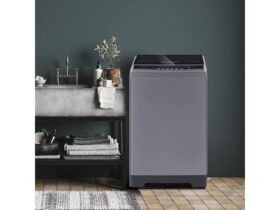
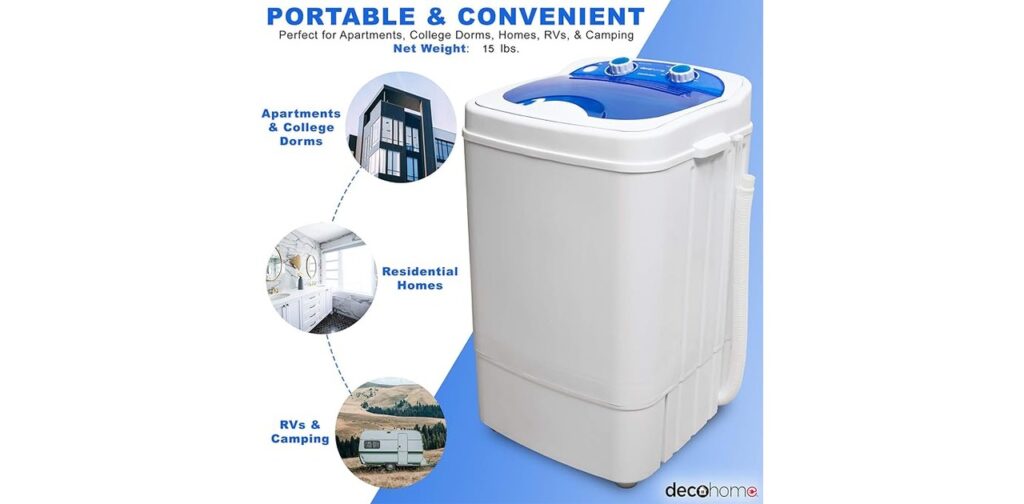
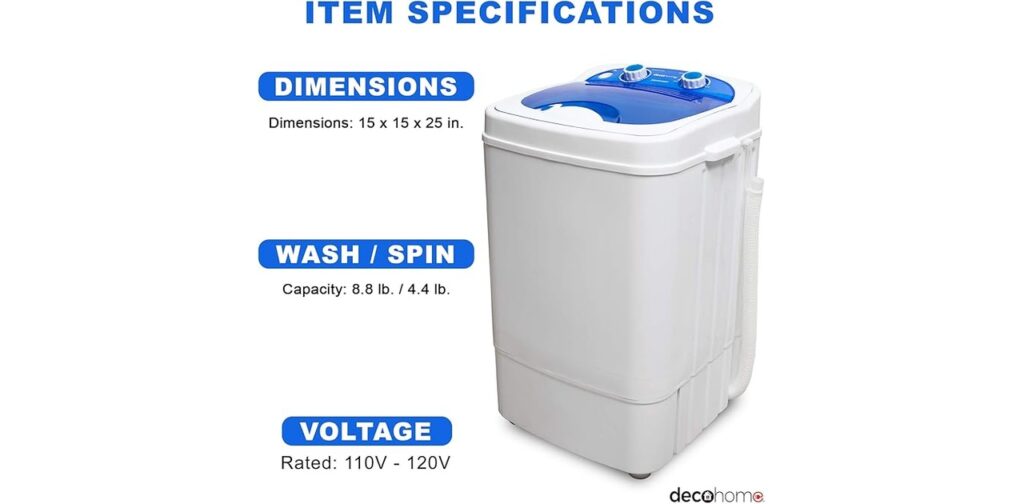
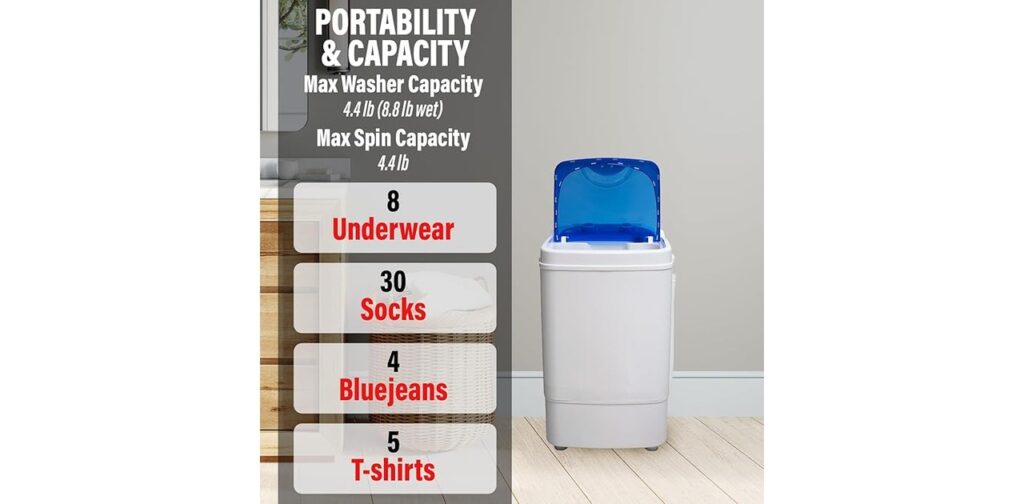
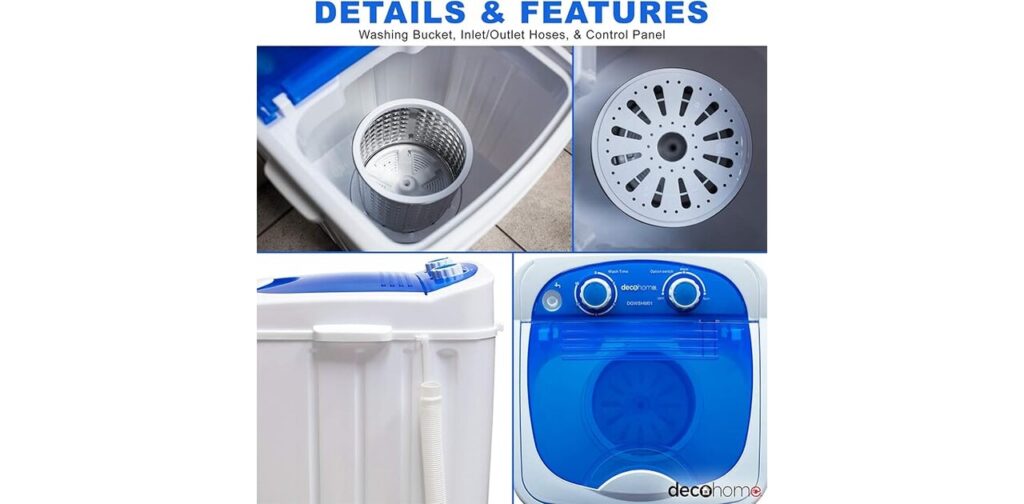
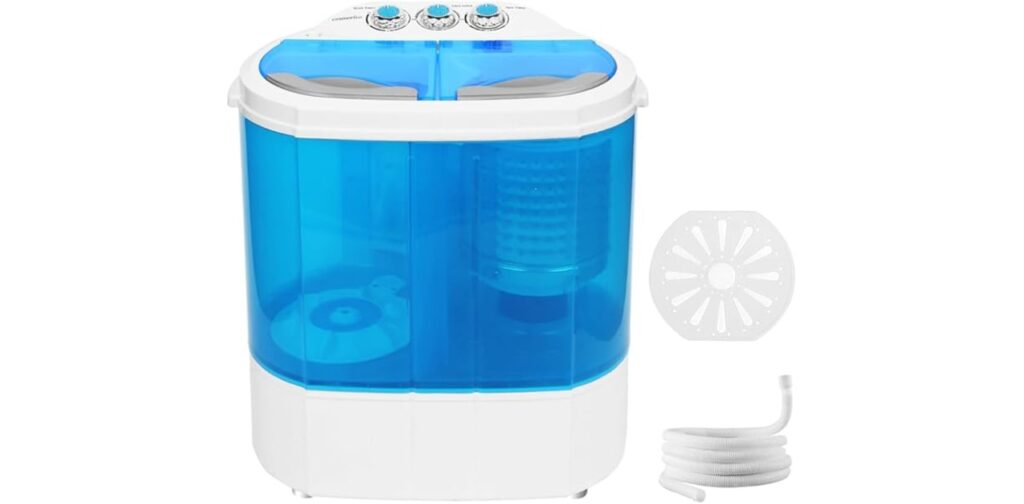
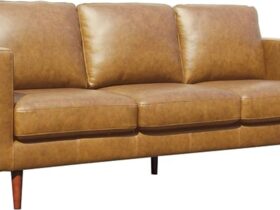



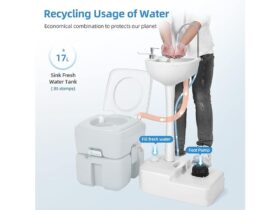
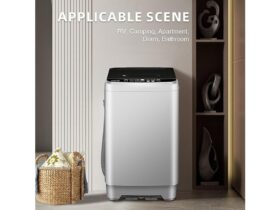
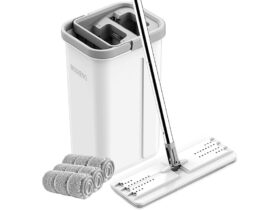
Leave a Reply